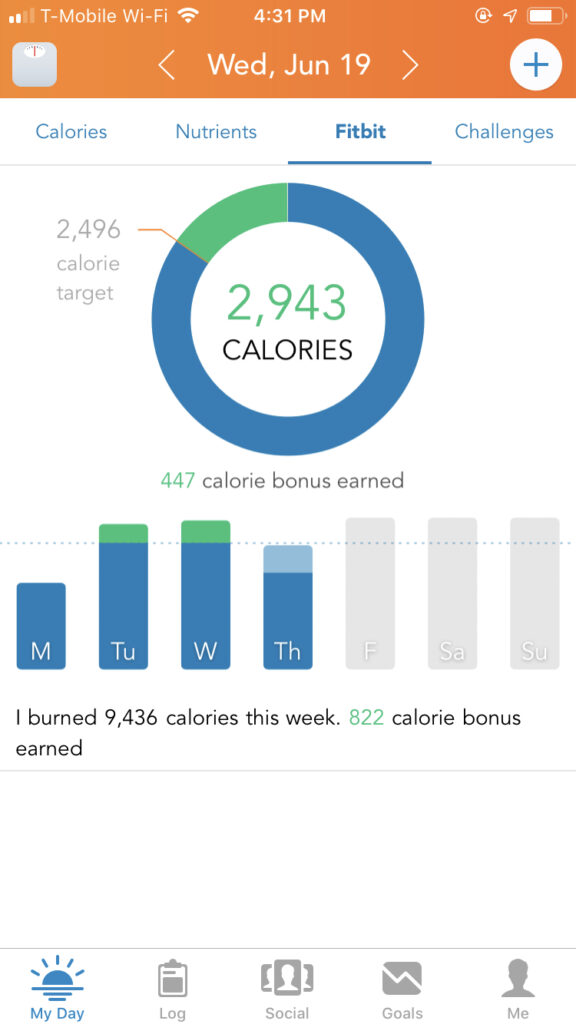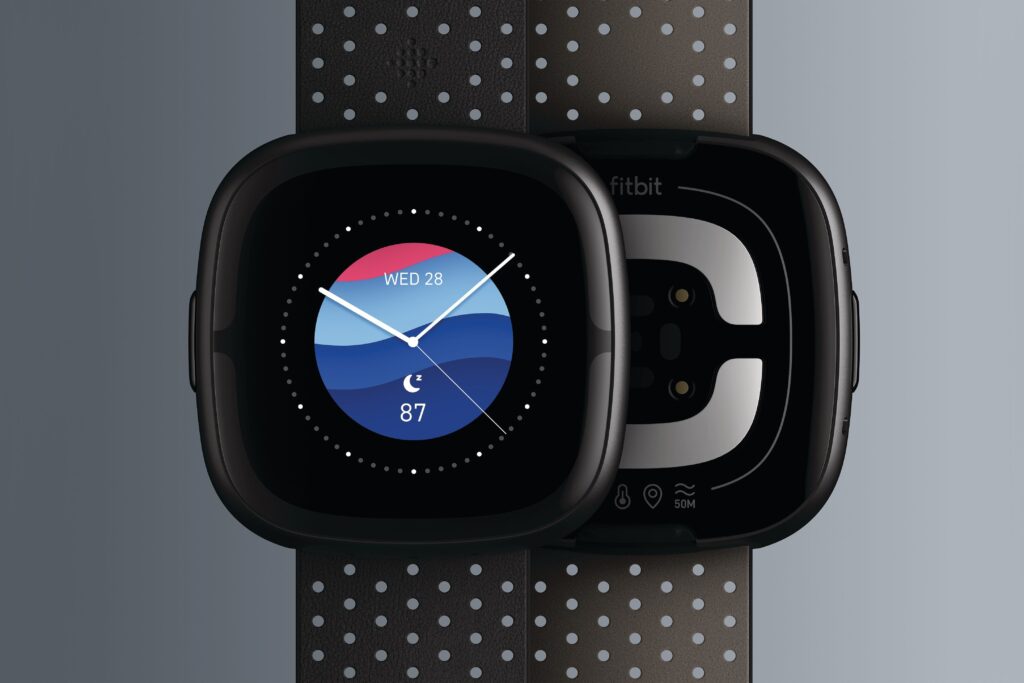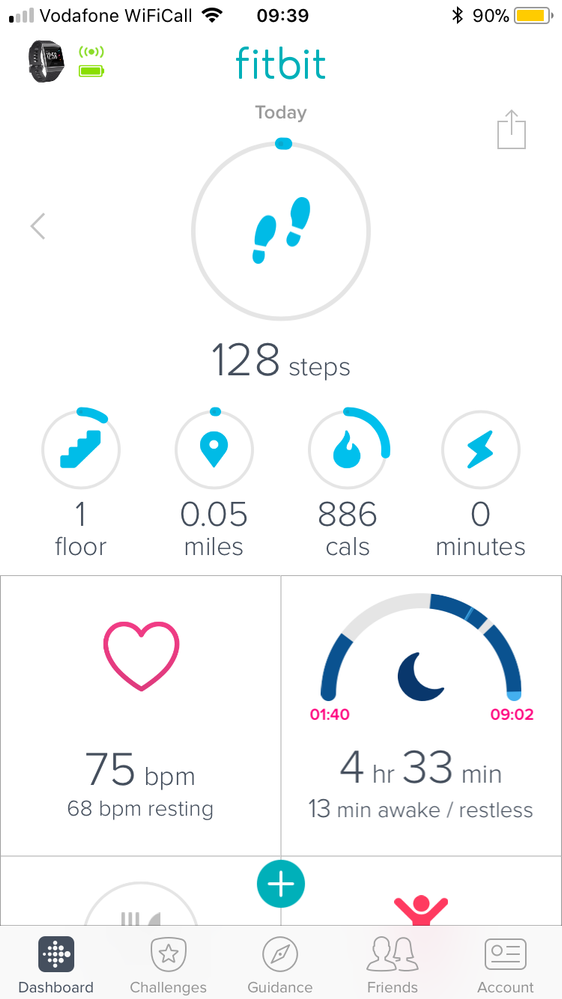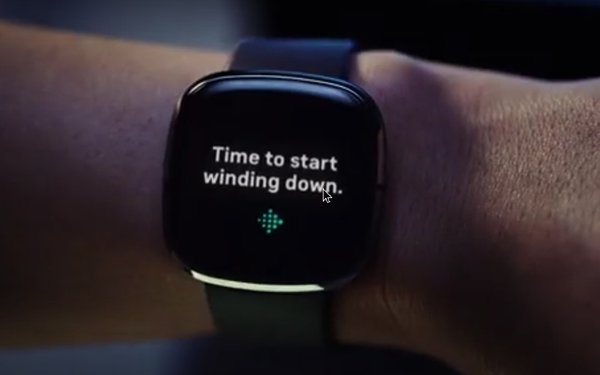
One of the various activity trackers that have aided many people in enhancing their fitness and health is Fitbit. You can monitor real-time calorie reduction data and learn how to modify your exercise schedule with this bracelet-sized device.
Users unfortunately frequently lack clarity regarding the accuracy of the data that their Fitbits display. So lets find out How Accurate is Fitbit’s Calorie Count?
The most crucial thing to keep in mind with Fitbit’s calories burnt statistics is that it can occasionally be wrong. Don’t, however, immediately throw away your Fitbit because of this one fact.
Instead, think about the variables affecting your Fitbit’s level of accuracy before concluding. Firstly now let’s initially look into how Does a Fitbit generally Calculate Calories Burned?
How Does Fitbit Calculate Calories Burn?
The basic fact is that Fitbit calories burnt sometimes represent an estimate rather than a precise measurement. Even so, you may still have confidence that Fitbit’s estimation of calories burnt compares favorably to comparable activity trackers.
Your Fitbit typically determines two types of calories burnt. BMR calories make up the first method, whereas exercise-related calories make up the second. BMR calories are the ones you expend when engaging in routine tasks that keep you alive. Exercise calories, as the name implies, are those that your body burns when you engage in certain calorie-burning activities.

Method 1: Using Basal Metabolic Rate (BMR) Data
The rate at which your body burns calories when you are not exercising is known as BMR. Age, height, weight, and gender all affect BMR data. It will therefore differ from person to person. One of the key factors contributing to the general inaccuracy of Fitbit calories burnt is the use of BMR data.
Firstly, Fitbit’s algorithm does not take into account fitness variations among individuals who fall into the same BMR category. Your metabolism will be different, for instance, if you exercise every day but are the same age and weight as someone who doesn’t. Even though Fitbit places you in the same BMR category, when using BMR data, there should be a variation in the total number of calories burned.
Likewise, when you enter false information into your BMR profile, this presents another possible area for error. If you don’t enter the right information, Fitbit will use inaccurate information to estimate your calories burned.
Method 2: Using Exercise and Movement
Fitbit monitors your heart rate, exercise, and movement in addition to BMR. Typically, Fitbit determines how much energy you waste during movement and exercise before quantifying how many calories you have burned. It’s still challenging to predict mobility effectively, even with cutting-edge technology like Fitbit’s algorithm.
Fitbit frequently detects movement, even when you are simply moving the device along your wrist, as an example. For that reason alone, the Fitbit calorie counter will be off because fidgeting with the device is not a real movement. Additionally, depending on the specific movement, Fitbit either overestimates or underestimates energy expenditure.
Numerous studies demonstrate that Fitbit typically estimates calories burned accurately when running but not when walking. If the two exercises are combined, the total number of calories burned will ultimately be completely inaccurate.

How Accurate Is Fitbit’s Calorie Count?
The accuracy of your burned calorie tracking depends on several factors, such as:
1. Heart Rate Variability
Fitbit may not be able to accurately measure heart rates because they differ from person to person. This may also affect tracking accuracy.
2. Wrist Placement
Your Fitbit could misdiagnose your heart rate or calorie rate if it is not worn on the wrist correctly. As heart rate is a key component of calorie tracking, this would have an effect. Additionally, you ought to wear your Fitbit on your non-dominant wrist. This prevents hand motions like writing from boosting tracked motion and inflating activity.
3. Being under active
Your calorie tracking may be too low if you spend too much time sitting down. You won’t be able to have your Fitbit learn as much about your activity habits. It could believe that you are consuming fewer calories than you actually are.
4. Being very active
It may seem contradictory, but overestimation rises in those who are physically healthy and active. Compared to other smartwatches, you might notice that you burn a lot more calories.

Ways To Improve The Accuracy Of Fitbit Calorie Burn Count
There are certain things you can take to help your Fitbit track your burned calories as accurately as possible.
The following actions will guarantee that your Fitbit serves your needs and you in the best way possible:
1. By Updating Your Weight
For optimum results, make sure your Fitbit device is updated with your most recent weight. When your personal information is accurate, you’ll notice that calorie counting is more accurate.
2. By Staying Active
The most accurate use of any smartwatch, including Fitbits, is during moderate to intense exercise. Your tracker may be more accurate the more active you are because it aids in pattern recognition.

Bottomline
Fitbit’s tracking of calories burnt is not always accurate, as you have discovered from this post. However, you should be aware that utilizing a Fitbit has several advantages.
First of all, it will keep you inspired and make working out more fun. Additionally, Fitbit will still provide a reliable estimate of calories burned even while it does not display the precise number. To better meet your fitness goals, you might enhance or modify your fitness routine.
Suggested and Related Posts
Can We Swim or Shower Along With Our Fitbit Device?
Does Fitbit Work on a Treadmill in 2023? [ Explained ]
FAQ’S
1. How does Fitbit determine calories burned?
Fitbit devices combine your basal metabolic rate (BMR)—the rate at which you burn calories at rest to maintain vital body functions (including breathing, blood circulation, and heartbeat)—and your activity data to estimate your calories burned.
2. Does Fitbit track all calories burned?
Fitbit tracking devices measure both physical activity and health statistics, such as oxygen saturation, step count, heart rate and calories burned.
3. Which Fitbit is the most accurate calories?
The Fitbit Surge was found to be the most accurate for energy expenditure when stacked up against similar trackers. Another thing to consider is the tendency of popular trackers to overestimate calorie burn. In the course of a day, a couple hundred calories isn’t that big of a deal.
4. What is the most accurate way to count calories burned?
A heart rate monitor is one of the best ways to measure your calorie burn. Your heart rate indicates how much effort it takes for you to do a certain activity, and that effort determines the calories you burn.
5. Why is calorie count so important?
Counting calories can help you lose weight by bringing awareness to what you eat each day. This can help you identify eating patterns that you may need to modify, keeping you on track to reach your goals.
